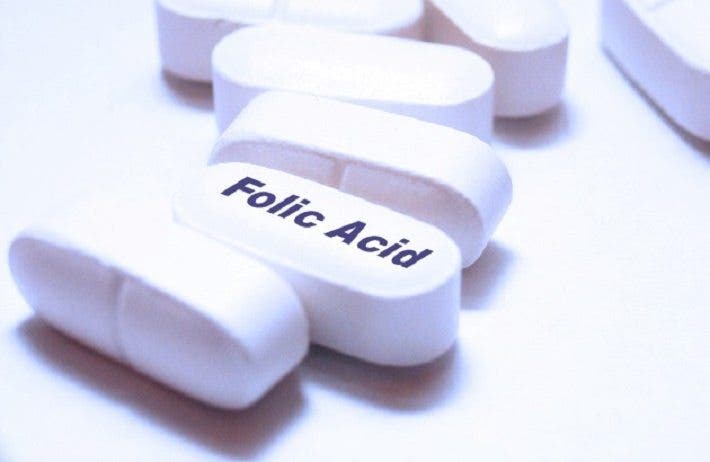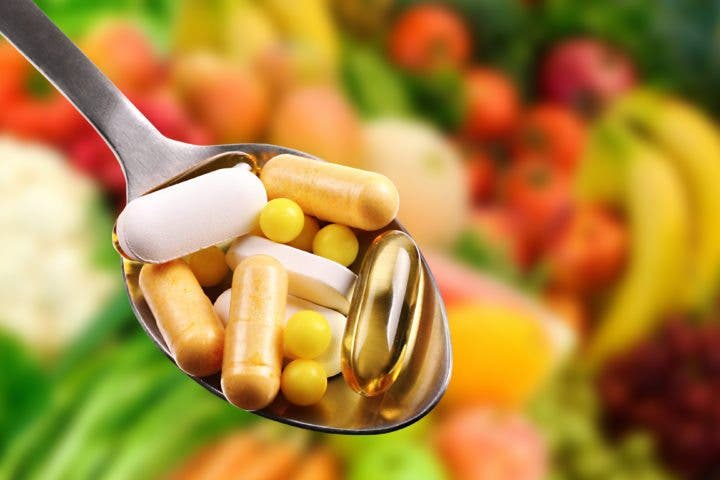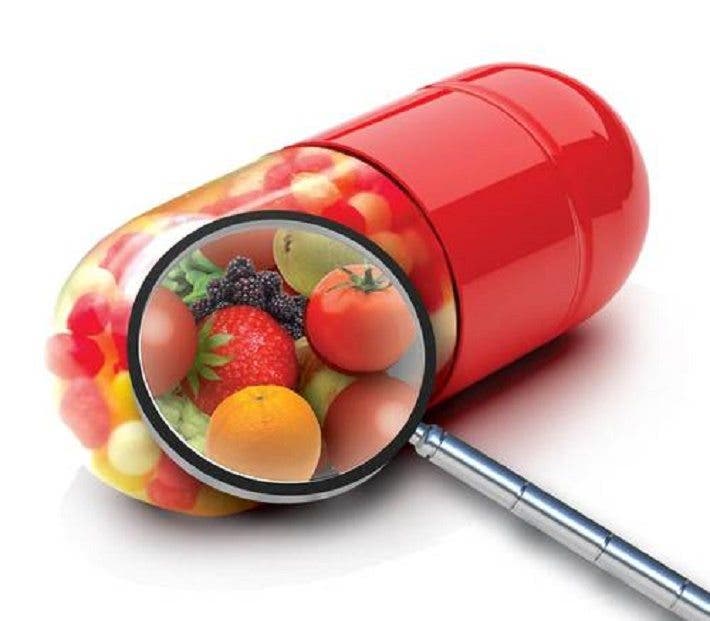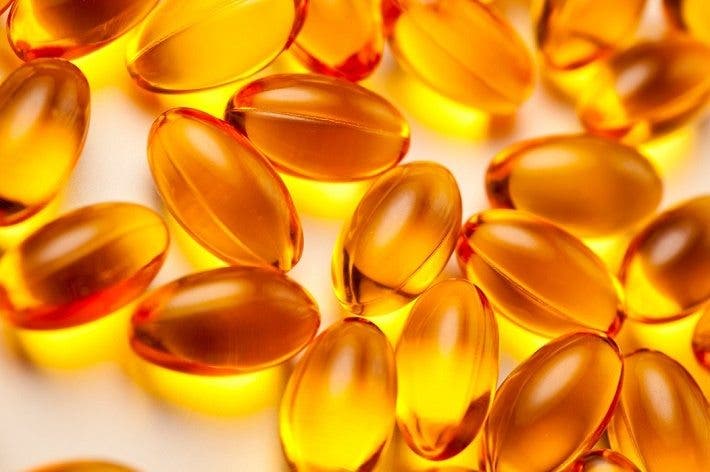Today it is very common to consume vitamin supplements , since the body alone is not capable of producing them. The problem is that today there is so much information and so many options to take them as a supplement that many people may not know which ones they really need.
For this reason, it is advisable, before consuming any vitamin supplement, to know what are the really basic vitamins for your body and how much of each of them you need, as well as from what foods you can also obtain them naturally.

What are vitamins?
Vitamins are organic substances necessary for the normal functioning of cells and the growth and development of the body. These can be divided into 2 types:
- Fat-soluble vitamins – These vitamins bind to fat cells in the stomach and are stored for later use. You are unlikely to develop deficiencies in these vitamins. The fat-soluble vitamins are A, D, E, and K.
- Water-soluble vitamins: these vitamins can be absorbed directly by the cell. Any excess of them that is not used is expelled through urination. Water-soluble vitamins include vitamin C, niacin, folic acid, and the four B complex vitamins.

What are the most popular vitamin supplements?
1. Biotin
Biotin, or vitamin B7, is a water-soluble B-complex vitamin whose key role is cell growth and metabolism. Deficiencies are rare in this vitamin.
You need about 0.03 mg a day of vitamin B7 , and the food sources from which you can get it are cooked salmon, whole grains, eggs, and avocados.
2. Folic acid
Folic acid helps pregnant women ensure the healthy development of their babies. Even if you are not pregnant, folic acid can help with cell development and even reduce the risk of heart disease and colon cancer.
You need about 0.4 mg of folic acid a day , and the food sources you can find it in are cereals, asparagus, spinach, orange juice, and lentils.
3. Niacin
Niacin or vitamin B3 is essential for the conversion of food into energy. It also influences the health of hair, skin, eyes, liver, and red blood cells, reducing the risk of developing heart disease.
In men the ideal level of vitamin B3 is 16 mg a day and in women 14 mg. An extreme deficiency of niacin is rare, but if it exceeds 50 mg a day, you may notice that your face turns red.
Niacin is found in foods like peanuts, chicken, salmon, fortified cereals, and coffee.
4. Pantothenic acid
This other vitamin of the B complex, more specifically B5, has a key role in food metabolism, as it helps to synthesize neurotransmitters from red blood cells and hormones.
You need about 5 mg a day of pantothenic acid and there is no upper limit in this case. Deficiencies are extremely rare and there is no toxicity.
Food sources that you can find vitamin B5 in are chicken, eggs, whole grains, sweet potatoes, avocado, and yogurt.

5. Riboflavin
Riboflavin, or vitamin B2 , is a water soluble vitamin. It helps convert food into energy, helps with the absorption of iron in the gut, and improves the health of hair, skin, eyes, muscles, and brain.
Men need about 1.3 mg of riboflavin a day and women 1.1 mg a day. The food sources in which you can find them are in milk, almonds, eggs, grains and enriched cereals.
6. Thiamine
Like other water-soluble B vitamins, thiamine or vitamin B1 helps metabolize food and improves hair, skin, muscle, and brain health.
Thiamine toxicity has not been observed and deficiencies are not common, but these can affect the nervous, cardiovascular, muscular and gastrointestinal systems in a number of ways.
There is no set upper level, but men need about 1.2 mg a day and women 1.1 mg a day. Food sources you can get this vitamin from are milk, lentils, cantaloupe, white rice, and pecans.
7. Vitamin A
This vitamin stimulates the growth of red blood cells, maintains the immune system, rebuilds bones, and regulates cell growth. Variations of this vitamin are also used to treat skin conditions such as acne.
Men need about 0.9 mg and women 0.7 mg. Vitamin A deficiency is rare but can cause night blindness (or even complete blindness) and increase susceptibility to infectious diseases.
Food sources in which vitamin A is found are kale, cod liver oil, eggs, carrots, sweet potatoes, cantaloupe, mango, and zucchini. Consider taking a supplement of this vitamin if you cannot get enough of it through your diet.
8. Vitamin B6
This vitamin helps produce serotonin, a hormone that plays a role in mood, appetite, and sleep. It also plays a role in cognitive and immune function, as well as reducing heart disease.
You need about 1.3 mg a day of vitamin B6. If this vitamin is received in high doses it can lead to numbness or pain in the extremities.
Food sources in which vitamin B6 is found are salmon, chicken, banana, baked reddish potato (with the skin), hazelnuts, and cooked spinach.
9. Vitamin B12
This water-soluble vitamin helps metabolize fatty acids and amino acids. Vitamin B12 deficiencies are common in the elderly and can contribute to memory loss and dementia.
You may need to take a vitamin B12 supplement if you are a vegetarian or vegan . You need about 0.0024 mg per day of this vitamin, and the food sources you can get it from are clams, mussels, beef, salmon, eggs, and milk.
10. Vitamin D
Vitamin D is an essential fat-soluble vitamin that is key to the function of the nervous and immune systems. This helps increase bone density and is absolutely vital for calcium metabolism. This vitamin is basically obtained from the sun. but it is not a bad idea to supplement it with a supplement in the winter months.
Approximately 0.015 mg per day is needed. Deficiency of this vitamin can lead to an increased risk of osteoporosis.
The food sources in which you can find it are cereals, milk, egg yolks and canned salmon, but if necessary, you can also buy a supplement.
11. Vitamin E
Vitamin E fights free radicals and maintains the health and integrity of cell membranes. Not getting enough vitamin E can lead to impaired balance and coordination, muscle weakness, and pain or numbness in the extremities.
You need approximately 15 mg of vitamin E a day and the food sources in which it is found are olive oil, almonds, avocado and hazelnuts, and you can consider taking a supplement if necessary.
12. Vitamin K
This fat-soluble vitamin is essential for wound healing and bone development. Vitamin K helps with blood clotting, although too much of it can lead to unwanted blood clotting. Men need about 0.12 mg a day and women need 0.9 mg.
Vitamin K deficiencies can lead to easy bruising, excessive bleeding, nosebleeds, and heavy menstrual periods.
Food sources for vitamin K are cooked broccoli, kale, parsley, and Swiss chard.
References
- Bodyrock. The essential guide to vitamins and minerals. For Bodyrock. [Revised September 2016]